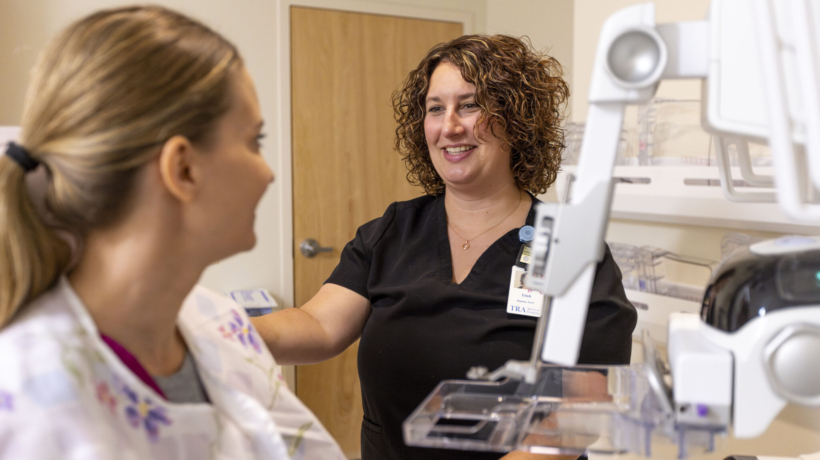Why Your First (and Every) Mammogram Matters: Take Charge This Breast Cancer Awareness Month

October is Breast Cancer Awareness Month — a time not only to raise awareness, but to empower women to take control of their health. At TRA Medical Imaging and Diagnostic Imaging Northwest, we believe that routine screening mammography and early detection save lives. We want to help you make informed choices and feel confident in scheduling your exam.
New Evidence: The Importance of the First Mammogram
A recent article from Radiology Business underscores something crucial: women who skip their first screening mammogram when invited face a 40% higher risk of breast cancer death over time.
This study followed nearly 433,000 women in Sweden over as much as 25 years. It found that:
- Those who did not attend their first screening were also less likely to attend future ones, creating a pattern of under‑screening.
- Their cancers, when found, were more often diagnosed at later stages (stage III or IV)
- The higher death rate seems to stem not from more cancers, but from later detection meaning delayed diagnosis made treatment more difficult.
In other words: showing up for that first mammogram is a simple step with long-term impact. It’s not just one appointment — it’s an investment in your health journey.
Our Screening Guidelines & How We Support You
At TRA and DINW, we’re committed to promoting breast health in our communities. Here’s how we guide care:
- Annual screening mammograms, beginning at age 40. You don’t need a referral for a screening mammogram.
- Clinical breast exams by a healthcare provider, starting around age 20.
- Breast self-awareness/self‑exams, beginning in your 20s to understand what’s normal and notice changes early.
- Breast density notification: Under Washington state law, when you receive your mammogram result from us, we will notify you of your breast density.
- Additional imaging options (if needed): MRI or ultrasound may be recommended in certain cases, but they do not replace the mammogram.
We believe in making the process comfortable, clear, and respectful:
- A female technologist will guide you through your exam.
- We’ll review your history, previous imaging, and any questions you have.
- We use state-of-the-art 3D mammography technology. On exam day, please avoid deodorant, perfumes, or powders in the chest/underarm area, as they may interfere with image quality.
- Screening mammograms usually take about 30 minutes; diagnostic mammograms (for evaluating a symptom or finding) may take up to an hour.
What Does Breast Density Mean and Why It Matters
Fairly recently for Washington state legislation, all patients receiving a mammogram will be notified of their breast density in their results letter. Breast density refers to the relative amount of fibroglandular (glandular) tissue compared to fatty tissue in the breast. If your breasts have more fibroglandular tissue, they are considered “dense.”
- Having dense breasts is a common and natural finding, and density tends to decrease as you age.
- Dense tissue can make it more difficult to see small cancers on a mammogram (because both dense tissue and some tumors appear white on the images).
- However, regardless of density, mammograms are still the best screening tool proven to reduce breast cancer mortality.
- If additional clarity is needed, your provider may discuss supplemental imaging (MRI, ultrasound) — but these do not replace a mammogram.
If you’re notified that you have dense breasts, talk with your provider about your individual risk and whether extra imaging or monitoring is appropriate for your situation.
Why Your Next Step Can Be So Powerful
- You hold the power of detection. Mammograms can catch changes before they’re felt or seen.
- One appointment can change your screening pattern. That first mammogram can serve as an anchor for remaining consistent.
- You deserve proactive care. No matter your risk factors or background, screening is a tool you can use.
Schedule your screening mammogram online or call 253-761-4200.
Let Breast Cancer Awareness Month be more than just a message let it be a time when you take meaningful action for your health.
